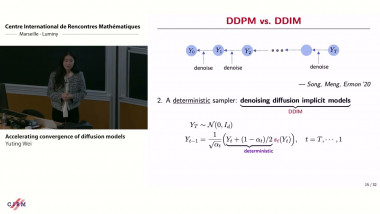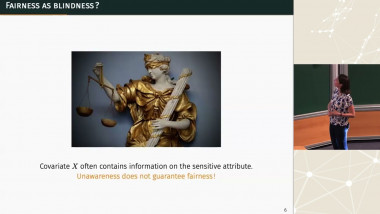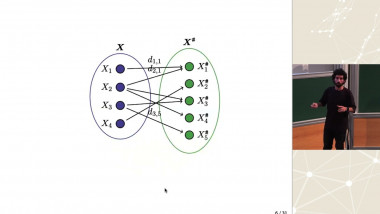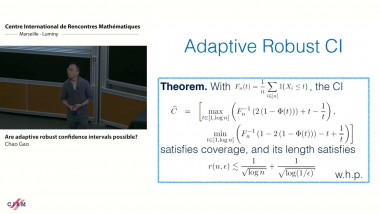ABC for neuronal data
Apparaît dans la collection : 2023 - T1B - WS2 - Networks of spiking neurons
When applying ABC to stochastic models driven by stochastic differential equations (SDEs), the derivation of effective summary statistics and proper distances is particularly challenging, since simulations from the model under the same parameter configuration result in different output. Moreover, since exact simulation of SDEs is rarely possible, reliable numerical methods need to be applied. Here, we show the importance of adopting reliable property-preserving numerical schemes for the synthetic data generation, and the importance of constructing specific ABC summaries that are less sensitive to the intrinsic stochasticity of the model, being based on the underlying structural model properties. We embed them within the recently proposed guided sequential ABC approaches [1], testing them on the stochastic FitzHugh-Nagumo model (modelling single neuron dynamics), and on the broad class of partially observed Hamiltonian SDEs, in particular on the stochastic Jensen-and-Rit neural mass model, both with simulated and real electroencephalography (EEG) data, for both one neural population [2] and a network of populations. The latter is particularly challenging, as the problem is high-dimensional in both the parameter space (>15 parameters) and the SDE dimension (>20). References below.
















